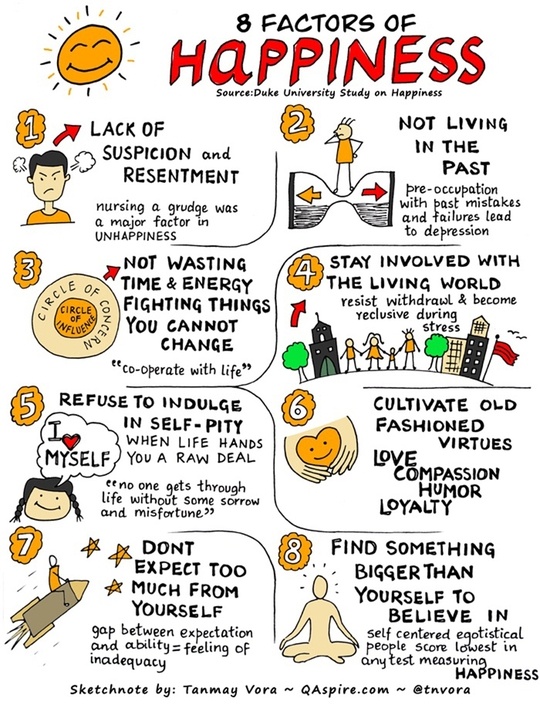The following was inspired by Claudia Dawson and a Duke University study on Happiness via Recommendo.
First, here’s the Duke University study findings:

(Click here if you can’t see the above infographic).
Next, here’s what Claudia Dawson so brilliantly recommended based on these findings…
“I’ve found the quickest way to dispel unhappiness is to ask myself introspective questions to find the source. Based on these 8 factors of happiness, I would ask myself:
- Am I feeling suspicion and resentment?
- Am I living in the past (or in the future)?
- Am I wasting time and energy fighting conditions I can’t change?
- Am I isolating myself or withdrawing from the world?
- Am I indulging in self-pity?
- Am I expecting too much of myself?
…I then continue the line of questioning to gain more self-awareness or I pivot to an easy gratitude practice, like listing 10 things that make me happy on my fingers. This usually gets me out of my head and back to the present moment, as well as in alignment with the values and experiences that make me happy.”
Finally, here’s my take:
The thing about thinking is that so much of it is done unconsciously (like 99%?). As in, we have no idea that we’re bathing in self-pity, replaying the past, cancelling plans so we can “introvert,” comparing ourselves to the greats, nurturing suspicion, etc…
Don’t take the above insights or questions lightly—this is life-changing stuff. Print / write it all down and display it in a place where you’ll see it regularly.
This way, it’ll snap you out of undesirable (unconscious) thought patterns and back to the place where happiness is much more likely to be found.